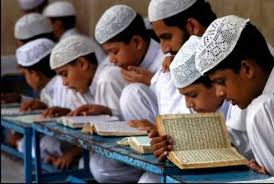Is Uttarakhand Minority Education Bill 2025 an infringement of Constitutional rights of minorities ?

Is Uttarakhand Minority Education Bill 2025 an infringement of Constitutional rights of minorities ?
Khursheed Ahmed Siddique
Dehradun, Oct 8
The Constitution of India guarantees every citizen the freedom to practice, profess, and propagate their religion. Articles 25 to 30 specifically safeguard the religious, cultural, and educational rights of minorities. These provisions were framed to ensure that neither the Central nor the State Government interferes with the internal functioning or religious autonomy of minority communities.
In this context, the “Uttarakhand Minority Education Bill 2025”, proposed by the Government of Uttarakhand, has raised serious concerns. There is growing apprehension that the new legislation might curtail or override the fundamental protections provided to minorities under the Indian Constitution.
Minority educational institutions — especially madrasas — are not merely centers of religious learning; they serve as vital guardians of community identity, moral values, and cultural heritage. Article 30(1) of the Constitution explicitly states that “All minorities, whether based on religion or language, shall have the right to establish and administer educational institutions of their choice.”
Therefore, any attempt by the State Government to interfere in the internal management, curriculum, or religious teachings of such institutions would be in direct conflict with both the letter and spirit of the Constitution.
Furthermore, replacing or diluting religious education in madrasas with a standard secular curriculum would amount to an infringement upon Article 25, which guarantees the right to freely profess and practice one’s religion. The secular character of India does not mean the exclusion of religion from public life — rather, it ensures equal respect and protection for all faiths.
It is thus imperative that the objectives, provisions, and implications of the Uttarakhand Minority Education Bill 2025 be made fully transparent and open to public discussion. Enacting such a law without proper consultation would not only undermine constitutional values but could also disturb the long-standing harmony and mutual trust among communities in the state.
The minority community’s right to manage its own educational institutions in accordance with its faith and culture is both a constitutional and moral entitlement. The role of the government should be to support and strengthen these institutions — not to restrict or redefine them.
( Khursheed Ahmed Siddique is a social worker of Dehradun )






